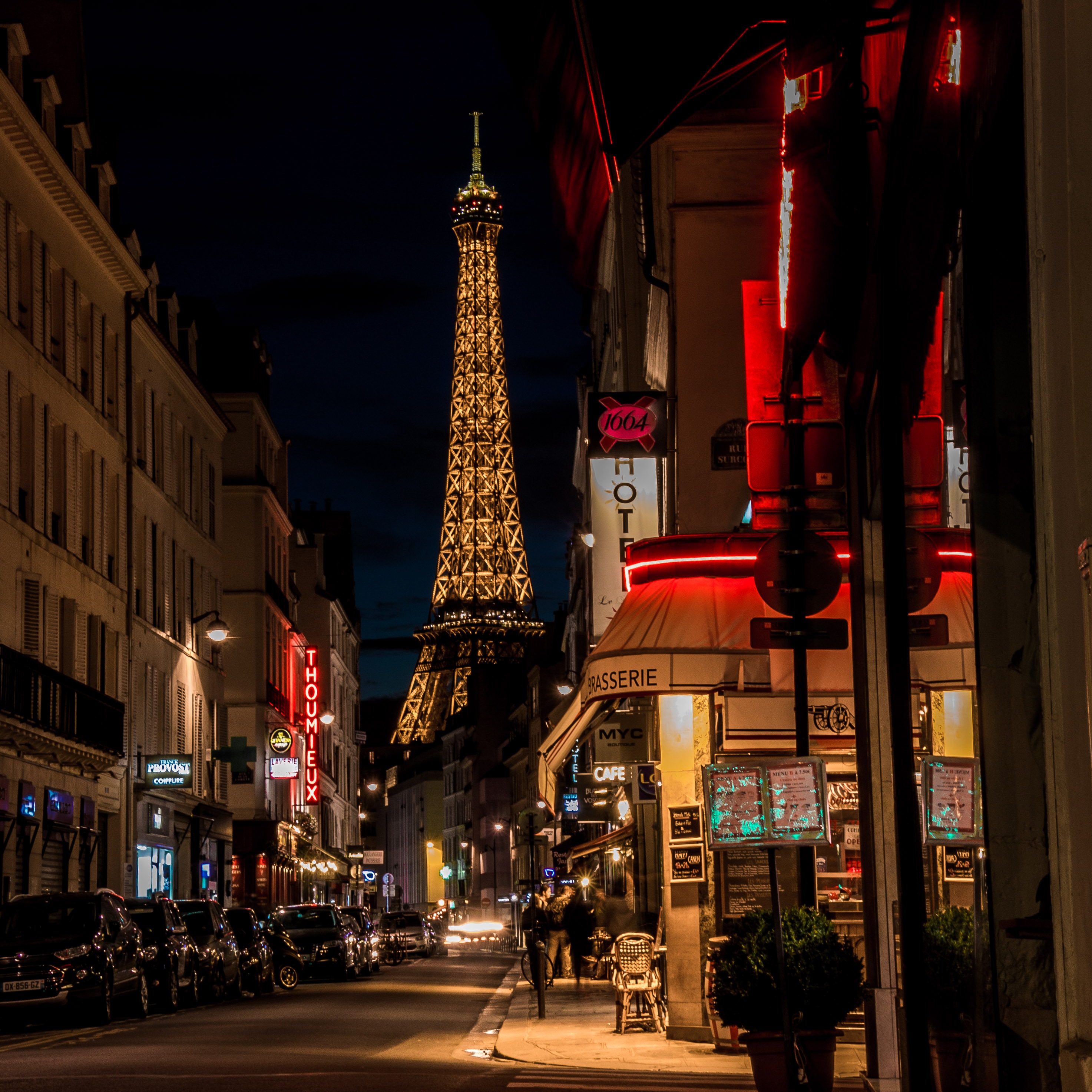
When most people think of traveling to Paris, they automatically envision themselves strolling through the charming streets, taking in the beautiful architecture and savoring delicious French cuisine.
However, for some unlucky visitors, their experience in the “City of Love” is not as magical as they expected.
Some people who visit Paris start to feel overwhelmed and even suffer from a condition known as “Paris Syndrome”. In fact, there are countless cases of many foreigners visiting Paris and then falling into a deep depression or even having a mental breakdown due to the sudden change in environment and culture.
But does this disorder actually exist, or are people simply mislabeling typical culture shock symptoms?
Are tourists really falling apart when they visit the City of Love?
In this blog post, we’ll explore what Paris Syndrome is, whether or not it exists, and what you can do to prepare for your trip to Paris if you’re worried about it.
This 10-page Paris travel guide includes all the best foods to eat in Paris, where to eat, the top things to do and see in Paris, including day trips, scenic tours, museums, attractions, and more. Find out the best (and worst) places to stay in Paris, including my top picks for hotels in each area. Links in this PDF are clickable so you can book your tours and hotels directly!
What is “Paris Syndrome” Exactly?
“Paris Syndrome” is a term that was first coined by Japanese psychiatrist, Dr. Hiroaki Ota in 1986. He used the term to describe the experience of Japanese tourists who visit Paris and then start to feel extremely anxious or have a mental breakdown.
These tourists often suffer from delusions, hallucinations, anxiety, and even feel as though they are being persecuted.
In some cases, they become so overwhelmed that they have to be hospitalized.
While “Paris Syndrome” was first described in relation to Japanese tourists, it can affect anyone from any country who visits Paris.
The cause of “Paris Syndrome” is still unknown, but some experts believe that it is triggered by the sudden change in environment and culture. For example, Japanese tourists may be used to living in a structured society with strict rules and expectations.
When they visit Paris, they are suddenly faced with a much more relaxed and laid-back culture where anything goes. This sudden change can be overwhelming for some people and cause them to have a mental breakdown.
Others believe that “Paris Syndrome” is simply a form of culture shock that affects people who are not prepared for the cultural differences between their home country and Paris.
“Paris Syndrome”: A mysterious illness… or just plain culture shock?

Culture shock is a condition that can affect anyone who travels to a new place and is not familiar with the culture.
Symptoms of culture shock can include, but are not limited to: homesickness, feeling lost and disoriented, anxiety, depression, irritability, and even physical symptoms like headaches and stomachaches.
Experiencing culture shock while visiting a new country is completely normal, especially when visiting a country that’s wildly different from your own. I definitely learned this for myself when I moved to France in 2019, without ever even visiting the country (or bothering to learn the language) before coming here!
Usually, culture shock is only temporary and will go away after a few weeks or months as you start to get used to your new surroundings. However, for some people, culture shock can be more severe and last for much longer.
In extreme cases, it can even lead to depression, anxiety, and other mental health disorders.
Thankfully, I’ve never experienced symptoms this severe while living in France, but I have had friends who’ve gone through similar experiences while visiting Paris.
And honestly, there have been some times here in this city where I was just straight up not having a good time.
There’s just something about this city that can make a person go crazy sometimes…
But is “Paris Syndrome” a real thing? Or is it just a way for people to mislabel their culture shock symptoms?
Related Read:
7 Things I Hate About Living in Paris
Does it actually exist?
It’s tough to say for sure – the jury is still out on this one.
While there have been many documented cases of “Paris Syndrome”, there is no scientific evidence to prove that it is a real disorder.
It’s hard to know how many of these cases are actually caused by the sudden change in environment and culture, and how many are simply due to people not being prepared for the cultural differences between their home country and Paris.
Personally, I think that “Paris Syndrome” is a real thing, but it’s not an actual disorder. I think it’s just a way to describe the symptoms of culture shock that can be experienced by anyone who visits a new place – especially if that place is vastly different from their own culture.
I think that most tourist experience this feeling in Paris specifically because of the vast contrast between the glitz and glamour side of Paris that’s constantly portrayed in the media, and the gritty reality of what Paris is actually like.
It can be easy to get caught up in the dream of Paris and forget that it’s just a city full of people, crime, and its own problems – just like any other city.
Avoid falling victim to Paris Syndrome while visiting the city
If you’re planning on visiting Paris, or any other new city, there are a few things you can do to avoid falling victim to “Paris Syndrome”.
The first thing is to be prepared for the cultural differences. Do your research ahead of time so that you know what to expect and are not surprised by anything when you arrive.
There are a ton of cultural differences between France and the US, for example, so if you’re an American planning to visit Paris, be sure to read up on the differences before your trip.
That way, you’ll be less likely to get overwhelmed or homesick when you arrive.

Another thing you can do is to try and blend in with the locals in Paris as much as possible. This doesn’t mean that you have to completely change your entire wardrobe to look like a Parisian, but it does mean making an effort to not stand out as a tourist.
Wearing clothing that is less likely to mark you as a tourist (like avoided bright colors and logos) and learning a few key phrases in French can go a long way in helping you blend in.
And finally, don’t forget to take some time for yourself while you’re visiting. This is a huge city and it can be easy to get caught up in trying to see everything all at once.
But sometimes, the best way to enjoy Paris is to slow down and savor the experience.
There are tons of relaxing things to do in Paris that are perfect to unwind and de-stress: Take a walk through one of the many parks, have a picnic by the Eiffel Tower, or just sit at a cafe and people watch.
Do whatever you need to do to relax and recharge, otherwise you’ll be more likely to get overwhelmed and stressed out.
Final thoughts
Paris Syndrome is definitely a real thing, even if it’s not an actual disorder. It’s a type of culture shock that can be experienced by anyone who visits a new place, especially if that place is vastly different from their own culture, but for some reason has been mainly attributed to Paris.
The best way to avoid it is to be prepared for the cultural differences, try to blend in with the locals, and take some time for yourself to relax and recharge. Remember that
Paris isn’t all sunshine and rainbows like you may see in the movies, and that there are actual people living there with their own problems.
But if you can keep all of that in mind, you should be able to have a great time in Paris without succumbing to Paris Syndrome.
What are your thoughts? Do you think “Paris Syndrome” is real? Let me know in the comments below!
Hi, I’m Tiana – founder of and author here at Where Tiana Travels. I’m a 20-something with a love for all things travel, photography, and food. I have been living abroad for the past 5 years and solo traveling the globe in my free time. I created this blog to share my travel stories and inspire other women to go out and see the world. Read more about me here!



Emily Owens
Thursday 8th of June 2023
My mom and dad went to Paris when they were in their 70s, loved it, no “rudeness”, difficulties. My husband and I went a few years later and I was very impressed with the French politeness, cleanliness, no pushy impatience, and even went out of their way for us when we missed a bus to a chateau in Chantilly and a Parisian train passenger drove us to this chateau! Compared to some experiences in American cities the Paris trip was truly wonderful.